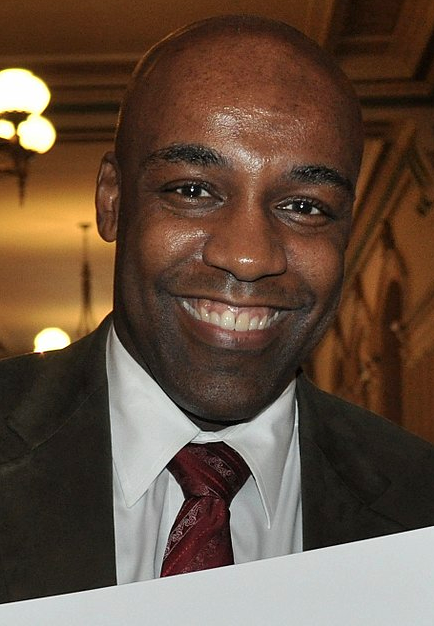 CHICAGO – Attorney General Kwame Raoul and Idaho Attorney General Lawrence Wasden today led a coalition of 25 attorneys general filing an amicus brief supporting federal regulations requiring “graphic image” warning labels, which consist of color images that depict the dangers of smoking, on cigarette packages.
CHICAGO – Attorney General Kwame Raoul and Idaho Attorney General Lawrence Wasden today led a coalition of 25 attorneys general filing an amicus brief supporting federal regulations requiring “graphic image” warning labels, which consist of color images that depict the dangers of smoking, on cigarette packages.
Raoul and the coalition filed the brief in R.J. Reynolds v. FDA in the U.S. District Court for the Eastern District of Texas, supporting the authority of the Food and Drug Administration (FDA) and the Department of Health and Human Services to issue regulations requiring graphic images to be included with text warnings on cigarette packages. The attorneys general argue that, contrary to the plaintiffs’ claims, the regulations do not violate the First Amendment. Additionally, the government has a substantial interest in ensuring that customers understand the dangers of smoking, particularly as tobacco companies have a long history of deceiving consumers.
Get The Latest News!
Don't miss our top stories and need-to-know news everyday in your inbox.
“The same tobacco companies that spent decades misleading the public and downplaying the addictiveness and health risks associated with cigarettes are now trying to claim that images demonstrating those risks somehow violate their First Amendment rights,” Raoul said. “The concept would be laughable were it not so dangerous. The FDA must have the ability to enact regulations that ensure consumers are aware of the risks before using these potentially fatal products.”
In 1998, Illinois, 45 other states, and several territories entered into the Master Settlement Agreement (MSA) with the major tobacco manufacturers. The landmark agreement related to the marketing, sale and consumption of cigarettes resolved states’ claims that major tobacco manufacturers engaged in decades of fraud by denying the addictiveness of cigarettes and misrepresenting the negative health impacts associated with using tobacco products. Although the MSA prohibited tobacco companies from misrepresenting the health consequences of cigarettes, Congress recognized that current warning labels on cigarettes did not sufficiently convey the dangers of smoking.
In 2009, Congress passed legislation specifying the text, size and placement of new warning labels and directed the FDA to select images to illustrate the warnings. The images would be combined with written warnings, such as, “WARNING: Smoking causes COPD, a lung disease that can be fatal,” and “WARNING: Tobacco smoke can harm your children,” and the combined warnings would have to cover the top 50 percent of the front and back panels of all cigarette packages and the top 20 percent of all print cigarette advertisements.
In their amicus brief, Raoul and the coalition argue that the government has a significant interest in informing the public about the dangers of smoking, and the First Amendment does not prevent the government from requiring that lethal and addictive products carry warning labels that effectively inform people of the risks those products entail. The coalition points out that the graphic warning labels are intended to inform consumers of relevant product information, which is consistent with many laws that are enacted to inform consumers of relevant product information. Additionally, the attorneys general point out that because graphic warning labels promote the “free flow of commercial information,” they are consistent with the First Amendment.
Raoul and the attorneys general point out that the proposed graphic warning labels are needed to counter the effects of deceptive and fraudulent conduct by tobacco companies. The FDA’s labels warn users of death and disease resulting from smoking, the effects of secondhand smoke and the dangers of smoking during pregnancy. In the brief, the attorneys general highlight previous court decisions finding that tobacco companies intentionally misled consumers by minimizing the hazards of smoking and exposure to smoking. The attorneys general state that in order to attempt to undo the decades of deception by tobacco companies, cigarette packages must feature powerful and graphic warning labels.
Today’s amicus brief is part of Attorney General Raoul’s longstanding commitment to fighting fraudulent and deceptive practices used by tobacco companies. He previously urged the FDA to strengthen e-cigarette guidance by prioritizing enforcement actions against flavored e-cigarettes and joined a coalition of attorneys general urging the streaming video industry to adopt policies to protect young viewers from often glamorized tobacco content. Currently, the Attorney General’s office is investigating one of the nation’s leading e-cigarette companies, Juul Labs, for possible violations of Illinois’ consumer protection laws. While the Attorney General’s investigation into Juul’s marketing practices is ongoing, the office is also evaluating the possibility of investigating additional e-cigarette companies.
Joining Attorneys General Raoul and Wasden in filing the amicus brief are the attorneys general of Alaska, California, Colorado, Connecticut, Delaware, the District of Columbia, Hawaii, Maine, Maryland, Massachusetts, Michigan, Minnesota, Montana, Nevada, New Jersey, New York, North Carolina, Oregon, Pennsylvania, Rhode Island, Vermont, Virginia and Washington.
For more information and free resources to help quit tobacco, please visit the Illinois Tobacco Quitline website or call 1-866-QUIT-YES.
Please see the attached amicus brief for additional information.
-30-
More like this:
